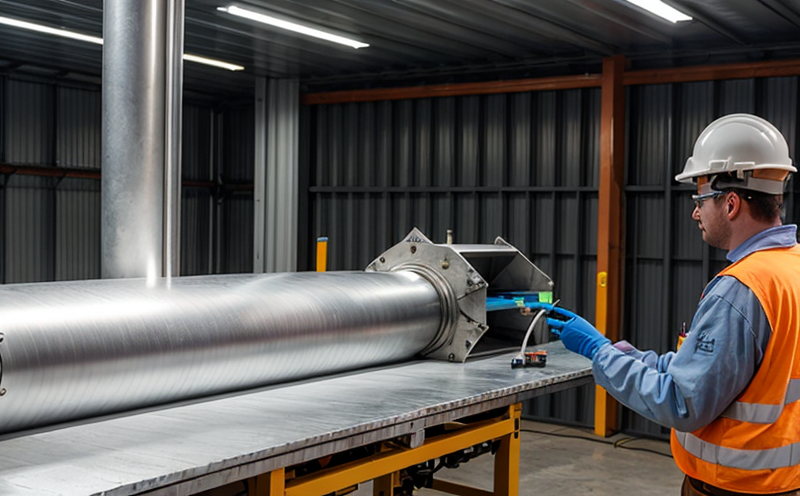ISO 527 Tensile Testing of Polymer Components for Renewable Applications
The ISO 527 tensile test is a fundamental method used to evaluate the mechanical properties of polymer materials. In the context of renewable energy applications, this test plays a critical role in ensuring the reliability and durability of components used in solar panels, wind turbines, and other green technologies.
Energy sector challenges often involve harsh environmental conditions that can degrade material performance over time. For instance, photovoltaic cells must withstand extreme temperatures while maintaining structural integrity, and wind turbine blades need to resist fatigue under cyclic loading. The ISO 527 tensile test provides a standardized approach to measure the elastic modulus, yield strength, ultimate tensile strength, and elongation at break of polymer components used in these applications.
The test involves pulling a specimen until it breaks or reaches its maximum load capacity. This method allows for precise measurement of material properties under controlled conditions, ensuring consistent results across different laboratories worldwide. Compliance with ISO 527 ensures that products meet international quality standards and can be trusted to perform reliably in diverse renewable energy environments.
For R&D engineers and quality managers involved in the development or procurement of materials for renewable applications, understanding the nuances of this test is essential. By adhering to ISO 527 guidelines, manufacturers ensure their components are robust enough to withstand operational stresses while remaining cost-effective and environmentally friendly.
Why It Matters
The reliability of materials is paramount in the renewable energy sector. ISO 527 tensile testing helps identify potential weaknesses in polymer components, ensuring they perform optimally under real-world conditions. This is especially important for applications like solar panels and wind turbines, where even minor material failures can lead to significant operational disruptions.
By conducting these tests, manufacturers can optimize their designs for better performance and longevity. For instance, understanding the exact yield strength of a polymer used in turbine blades allows engineers to tailor the blade's geometry for maximum efficiency without compromising safety. Similarly, knowing the elastic modulus helps in selecting materials that can maintain structural integrity under varying loads.
Furthermore, compliance with ISO 527 standards enhances the reputation of manufacturers and suppliers. It demonstrates a commitment to quality control and adherence to international best practices. This is particularly valuable when competing in global markets where regulatory standards are stringent and consumer expectations high.
Customer Impact and Satisfaction
Customers of renewable energy projects demand reliability, efficiency, and sustainability from the materials used. By leveraging ISO 527 tensile testing, manufacturers can deliver products that meet these expectations. This not only builds trust with customers but also fosters long-term partnerships.
Achieving compliance with international standards like ISO ensures that suppliers can confidently meet project specifications and regulatory requirements. For instance, wind turbine manufacturers who use polymer components tested according to ISO 527 can guarantee their blades will withstand the rigors of high-wind environments without failure.
Moreover, consistent test results across different batches or production runs ensure product consistency, which is crucial for maintaining a good reputation among customers. This reliability translates into higher customer satisfaction and loyalty, ultimately driving business success in the competitive renewable energy market.
Competitive Advantage and Market Impact
- Meeting International Standards: Compliance with ISO 527 ensures that materials meet global quality benchmarks, giving companies a competitive edge in international markets.
- Predictable Performance: Standardized testing methods like ISO 527 provide predictable outcomes, which is essential for consistent product performance and reliability.
- Innovation Support: By adhering to rigorous testing protocols, manufacturers can innovate with confidence, knowing that their materials will perform reliably under various conditions.
- Consumer Trust: Meeting international standards builds trust among consumers, leading to increased market share and brand loyalty.
The adoption of ISO 527 tensile testing also positions companies as leaders in quality assurance within the renewable energy sector. This can be a significant differentiator in a crowded market where sustainability and reliability are key considerations for both suppliers and customers.





